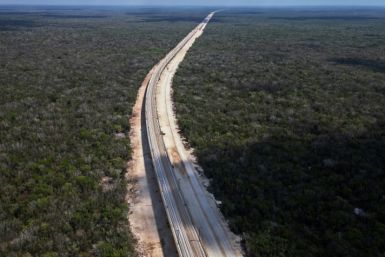Australia's Aboriginal Groups sign land deal with Rio Tinto
Five aboriginal groups in the Western Pilbara region is set to benefit from the mining resources boom in Australia as they confirm signing an agreement with mining firm Rio Tinto (ASX: RIO).
Reports from ABC News and other local dailies said this is so far largest native title deal ever struck between a mining company and Traditional Owners to earn in the next 40 years from expediting new iron ore mines.
The Aboriginal groups will receive at least $2 billion under a profit sharing agreement and get jobs in the company's mines, reports said.
Traditional Owner Burchill Hayes said in ABC Rural News said that it has taken many years of negotiation with Rio Tinto to settle the native title agreement and it's been a good outcome.
The Aboriginal groups were promised jobs and a partake in the mineral resources income from the sites, although Rio Tinto has not revealed the financial terms.
Classified as the second biggest iron ore miner Rio tinto said the agreement, which covers 71,000 square kilometres, or an area the size of Ireland, smoothes the way for Rio's plans to expand iron ore production by 50 percent to 333 million tonnes a year by 2015 at a cost of $11 billion.
Rio said on Friday it had signed land use partnerships with five Aboriginal councils and expected to seal deals with four remaining communities where its mining or infrastructure operations are.
It will pay an undisclosed fraction of a percentage of iron ore sales from new mines to the landowners in return for consent for all mine, rail and port developments on their land, Rio said in a related report of Reuters.
"We've ensured this is linked to our future prosperity. As new mines come on, traditional owners are beneficiaries," Janina Gawler, Rio Tinto's chief negotiator with the Aboriginal councils, told Reuters..
Newspapers estimated the communities could earn several billion dollars over 40 years.
"It's not out of the ballpark," Gawler said. "But what we have to remember here is the size and scope of this agreement, because it's across the entire footprint that Rio has interests in."
That footprint covers 14 mines, 1,600 kilometres of rail lines, and three ports.
Rio's side of the agreement includes ensuring that 14 percent of its workers are Aboriginal, up from 8 percent today, 14 percent of its contracts are with local Aboriginal businesses, and it meets training and scholarship targets.
Rio's shares eased 0.2 percent to A$79.91 in early trade, in line with rival BHP Billiton , underperforming the broader market after base metals prices fell on concerns about slowing U.S. economic growth.With reports from Reuters






